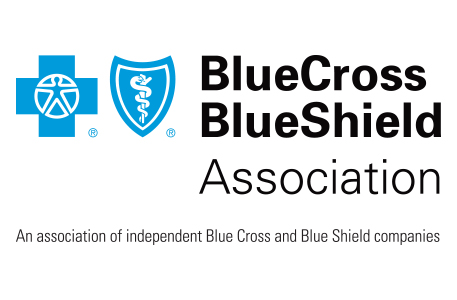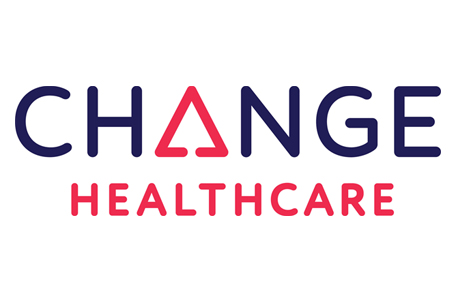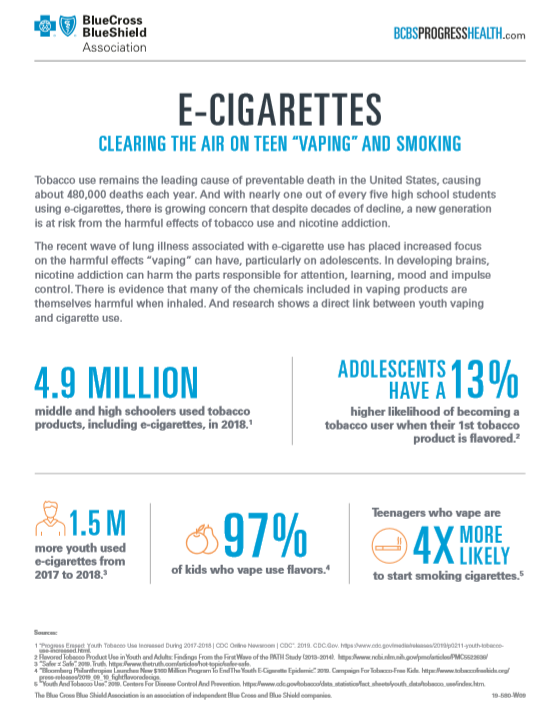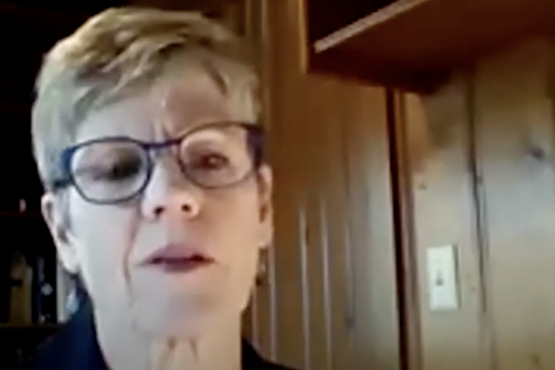Matthew Myers is president of the campaign for Tobacco-Free Kids, a leader in the fight to reduce tobacco use and its devastating consequences in the United States and around the world. Matt and I worked together on tobacco control when I was in the senate. Now he’s turned his attention to the vaping epidemic that has seen nicotine addiction rates rise in our youth for the first time in nearly two decades. He’ll also give us an update on risk related to tobacco and e-cigarette use during the COVID-19 pandemic. I’m your host, Senator Bill Frist.
Matthew Myers: The e-cigarette industry designed products with flavors that highly appeal to kids, make kids believe that these products can be used completely safely. They figured out how to deliver higher levels of nicotine than we have ever seen before so that kids would do it one week because it was cool, and the next week because they couldn’t stop.
Senator Bill Fr…: You’re listening to A Second Opinion, your trusted source engaging at the intersection of policy, medicine, and innovation and rethinking American health. This episode is brought to you by the Blue Cross Blue Shield Association.
Ninety-seven percent of teens who vape use flavors, and kids who use e-cigarettes are four times more likely to become smokers. So, Blue Cross and Blue Shield is using their voice to protect the next generation for the health of America.
Now let’s turn to the episode. Matthew Myers is president of the campaign for Tobacco-Free Kids, a leader in the fight to reduce tobacco use and its devastating consequences in the United States and around the world. Matt and I worked together on tobacco control when I was in the senate. Now he’s turned his attention to the vaping epidemic that has seen nicotine addiction rates rise in our youth for the first time in nearly two decades. He’ll also give us an update on risk related to tobacco and e-cigarette use during the COVID-19 pandemic. I’m your host, Senator Bill Frist. Welcome to A Second Opinion.
Infographic:The link between vaping and smoking among teens
Research shows a direct link between vaping and eventual use of combustible tobacco products.
Matt, you and I have known each other for a long time, more than 20 years back to my days in the senate. And I really do want to congratulate you and commend you and the campaign team for all the huge, tremendous work you’ve done to reduce cigarette use in this country and beyond. It’s saved thousands, tens of thousands and even hundred thousands of lives. For our listeners who may not know the campaign for Tobacco-Free Kids, tell us a little bit about it.
Matthew Myers: Well, the campaign for Tobacco-Free Kids for more than 20 years has been the leading advocacy organization working to reduce tobacco use, particularly among children and save lives. In the United States, the progress has been dramatic. When we opened our doors when you were a senator, 1996, over 36% of high school kids in this country still smoked. It was astounding. Today, fewer than 8% of high school kids around the country still smoke. It’s one of the great public health victories. And over the last 12 years, we’ve done the same kind of work in low income countries around the globe. And for the first time in history, we have bent the curve. Cigarette smoking in low income countries is no longer going up and is beginning to go down.
A matter of perspective. Over six million people die every year from tobacco use, the vast majority of them in low income countries. So the change that we’ve been able to bring about in fact is dramatic. And we at the campaign are delighted to have been able to work with public officials like you because you only solve this problem when government does what it knows can make a difference.
Senator Bill Fr…: And do you see the challenge overseas being much larger than the challenge was in the United States say 30 years ago or 40 years ago with the 60s, or is it comparable in terms of magnitude and size?
Matthew Myers: When I look overseas, what I see is the United States, but then 20 years behind. And so what we’ve seen is the marketing practices that we outlawed here, they took to low income countries across the globe. The way they reached out to kids in the United States, they’ve been trying to do across the globe. And so in one critical respect, the stakes are even higher because the numbers are higher. The advantage we have is that as a result of the work we’ve done in the United States and a few other countries have done, we know what works and if we can get governments to appreciate the severity of the problem, we can turn that around and make real change. So in countries like India and Bangladesh, over the last five years, we’ve seen a 20% decline in overall tobacco use. There, we’re talking about tens of millions of lives.
Senator Bill Fr…: Well, let’s come back and talk about it because I’m particularly interested in sort of a potential complacency in the United States. But before doing that, let’s look at some of the current issues. I think this whole focus on reducing tobacco and nicotine use is especially important. And now a recent study came out in the New England Journal of Medicine that found that the Chinese coronavirus patients, that is the ones in China, who smoked were more than twice as likely as those who didn’t to have severe infections from COVID-19. What are all the public health experts saying today about the dangers of smoking or vaping during this current COVID-19 pandemic?
Matthew Myers: Well, it shouldn’t be surprising. Coronavirus attacks the lungs, so that something like smoking and vaping, which harms your lungs weak weakens your immune system makes you more vulnerable to the most severe consequences of coronavirus. So what we’ve seen is the data in China is replicated by data in Italy, Spain, and a new study just out of France that shows that smokers who contract coronavirus are more likely to suffer the severe consequences, have a greater risk of death. And the very early data out of the United States is beginning to show the same thing.
Senator Bill Fr…: It’s fascinating and it does make intuitive sense, common sense as well. Now, is it translated to any sort of impact if people say, “Well, I better not smoke as much if there’s a chance I’m going to get it,” or the flip side with all of the isolation that we feel, the loneliness, the lack of social contact increase the stress and does increase nicotine and tobacco use?
Matthew Myers: That’s a great question. In one respect, I think there’s reason to be concerned that people are confined without much to do and stress could end up smoking more. On the other hand, families are together much more than they have been literally in our lifetime. And this is a great opportunity for moms and dads to be sitting down with their kids who have begun using e-cigarettes because of the sweet flavors thinking it’s harmful and kids should to be talking to their parents to say to them the consequences of smoking and vaping now are not just longterm, they’re immediate. They weaken our lungs. And if we don’t quit, they increase our risk of serious disease.
And as you know, better than I do, one of the things that most smokers don’t realize is that if you quit, you pretty rapidly begin to see an improvement in your lung function and a decrease in cardiovascular disease. So there’s probably never been a better time to quit where you could see the health consequences and benefits of it more immediately than today. We don’t have data yet. It’s too early to know what will actually happen. But I think we’re hoping that as more and more consumers realize it, that we may use this opportunity as one to actually reinvigorate interest in quitting rather than the opposite.
Senator Bill Fr…: Yeah, I think it provides a real teachable moment as tough as this environment is and the situations that we’re all living through. There are these teachable moments. And I think that is one. And the good news, and as a physician and as a heart surgeon, I would explain to my patients exactly what you said. And a lot of them said, “What are you talking about?” And that is even if you’re 50 or 60 or 70 years of age, much less if you’re 18, if you stop, within months we begin to see the improvement. And at six months in a year, you can get back to a pretty solid baseline before, which gives a real incentive for those who are interested in and understand that a little bit of action, a little bit of hard work and get you through it. And then you can return to essentially a normal health or close to baseline health.
Matthew Myers: And at this time of increased risk, that improvement could be the difference between life and death, right?
Senator Bill Fr…: That’s right. And that’s the teachable moment that we have. Let’s shift a little bit to the e-cigarette epidemic that we’ve seen, and you and I have written op-eds this year together as part of an educational communication effort. But let’s turn to e-cigarettes and youth e-cigarettes and the epidemic that we’ve seen. Explain how that so quickly over a period of a short few years became such a serious health threat to so many young people in every community of this great country of ours.
Matthew Myers: Well, I don’t think we have ever seen a health crisis like this arise so rapidly. Just between 2017 and 2019, we saw 135% increase in youth e-cigarette use, and it’s not just experimentation. Kids are becoming addicted more rapidly and frankly more intensely than we ever saw with cigarettes. Sadly, it wasn’t a coincidence. The cigarette industry designed products with flavors that highly appeal to kids, make kids believe that these products can be used completely safely. They figured out how to deliver higher levels of nicotine than we have ever seen before. So the kids would do it one week because it was cool and the next week because they couldn’t stop. And then they use social media. They use social media platforms that we as adults didn’t see until it was too late. But in those social media platforms, they portrayed e-cigarette use much like you and I remember as young people cigarettes were portrayed. It was the key to sexual social success, a glamorous life, a good time. And so kids thought they were cool until they couldn’t stop.
Senator Bill Fr…: How well has the media responded to that? I know back just even a couple of years ago, you had the media stars to the millennials to younger generations, they were out making it cool. And has the media responded to the fact that it is such a deadly habit?
Matthew Myers: We have seen a real change over the last two years in terms of media coverage of this issue. There has been as robust a treatment of the risks of e-cigarette use that I have seen, something that we haven’t seen with regard to traditional tobacco use in some time. And that’s incredibly important because young people simply don’t realize that even for them, there are health risks to using these products and the media has done a better and better job of it. I’m still concerned though that we every once in a while see a famous person using an e-cigarette on an evening talk show or something like that much less than before, but that’s what makes it cool.
Senator Bill Fr…: Just to put it in perspective and help me and our viewers and listeners, when you see a teenager smoking a cigarette, and then you go a block later and you see a teenager vaping, what are the differences you see between the two, either in their longterm health benefits and the disadvantages and lack of wellbeing or in the short term? I guess start with just the contrast between the two: teenager smoking a cigarette, teenager vaping say an e-cigarette. Which is hurting them the most? Which is more addictive? Which is going to have the worst longterm impact?
Matthew Myers: It’s an interesting question. There is no consumer product that’s ever been created that’s more deadly than a cigarette. It kills one a half to two thirds of all longterm users. Having said that, e-cigarette use is not safe either. Is it as dangerous as cigarette smoking? Well, we don’t know the longterm health consequences. Probably not. But young people shouldn’t be using either product. We do know that e-cigarette use among young people impacts the developing brain. It leads to rapid addiction and intense addiction. And we have learned from our history with cigarette smoking, the young people who become addicted as teens are more likely to suffer from addiction, serve out the rest of their life. We’ve also learned that vaping is in fact harmful to the respiratory system so that you’re beginning to do longterm damage to your lungs. So the right comparison to me isn’t is cigarette smoking worse than e-cigarette use for a kid. Both of them are extremely harmful.
Senator Bill Fr…: In an adult… And this may be a little unfair question asking you because you shouldn’t say that both are just terrible all the time, but the data has varied over time, looking at the scientific literature for adults. And if I’m an adult who smoked two packs of cigarettes a day and I have for 15 or 20 years, and my doctor says, “Let’s try an e-cigarette to wean you off,” where’s the science today in terms of that?
Matthew Myers: Well, unfortunately the science hasn’t developed anywhere near as rapidly as we would think it should. The Surgeon General issued a comprehensive report just this January about what we know about tobacco cessation across the board. And that report concluded that the science is inadequate to prove that e-cigarettes are actually helpful to adult smokers in quitting. On the other hand, if you’re a physician and you have a smoker and you’ve done everything you could to try to get them to quit and you have failed, would recommending an e-cigarette be a reasonable thing to do? Well, it might be. Probably have is that on a population basis, these products are being sold in convenience stores, vape shops all over the country. And they’re being used by a large number of people who have never smoked.
Senator Bill Fr…: We saw a lot of positive action I think in 2019 with the FDA and others. And the President had a plan that was released in February. Bring us up to date where we are in terms of a policy over the last year at the federal level, and then how effective it either has been to date or you think it will be.
Matthew Myers: Well, it’s a great question. One of the things that we’ve learned is that virtually every kid who uses these products uses a flavored product. It’s what makes it cool, what makes it taste good. In September the President proposed that FDA would ban all of these flavored products because there’s no evidence they help adults quit and a great deal of evidence that they lead to longterm addiction for kids. Unfortunately, by the time he came around to developing this policy that was issued in January, he exempted wholesale parts of the market. So he’s left mint e-cigarettes on the market. He’s left all sorts of flavors in what are called disposables, single use products that a single use has more than a pack of cigarettes have nicotine in it, as well as e-liquids that young people can pour into the other products. So unfortunately this is a case where the exemptions created such significant loopholes that I don’t think we’re going to see meaningful change among our kids.
Senator Bill Fr…: And now a quick word from our sponsors that make this podcast possible.
Speaker 3: Right now, Blue Cross and Blue Shield companies are supporting the heroic efforts of our healthcare partners on the frontline of this unprecedented fight, helping doctors and hospitals get the resources they need, ensuring patients don’t have to worry about costs, and making access to prescription drugs easier. Caring when it counts the most for the health of America.
Senator Bill Fr…: And now back to the episode. What about the FDA, the Food and Drug Administration, in fact, the first time you and I met was when we were determining how much authority they shouldn’t have and should they regulate tobacco? Is the Food and Drug Administration, where are they in terms of regulation tobacco, A, and then also vaping products? And outline with me a little bit about the approval process itself, especially for the vaping devices.
Matthew Myers: FDA has repeatedly expressed its concern about the effect of flavored products, e-cigarette products on the market. It has sounded the alarm to its credit that we now have a youth e-cigarette epidemic that needs to be done. This September, every e-cigarette manufacturer is required to submit an application to FDA in order to be able to continue to sell any of these products. And the standard, which actually you and I helped write many years ago, is that these products should only be approved if they’re appropriate for the protection of the public health. We don’t yet really know how FDA is going to apply that standard. They unfortunately have been slow so far in pulling project products off with flavors that clearly appeal to kids. Whether or not they use the new approval product process in order to pull off the market the flavored products that are driving the e-cigarette epidemic will be a key to whether or not frankly FDA regulation of these products is successful and meaningful.
The other issue that FDA is going to have to face is that some of the e-cigarette products out there are delivering nicotine at levels that we have never seen before. The potential for abuse, the potential that once a kid tries these products, they become addicted is extraordinarily high. In Europe, you’re not allowed to sell those e-cigarettes with that level of nicotine in it. And therefore we’re seeing a lot fewer kids become addicted longterm. So the second issue that FDA is going to have to determine, not only is what’s it going to do about the flavored products, but is it going to limit the level of nicotine that these people are able to deliver in ways that we know is contributed to the youth e-cigarette crisis?
Senator Bill Fr…: We also saw Congress act addressing the whole age, the minimum age to buy tobacco products like cigarettes and e-cigarettes and vaping products, and raised the age from 18 to 21. Generically that’s called Tobacco 21 for 21 years of age. And certainly that’s a step in the right direction. The real effort that we’ve discussed here in Tennessee, and I know a lot of states are discussing it, is how you make T21 or these Tobacco 21 laws strong enough to make a real difference, to have the impact for which they were intended? And then how do we keep lawmakers interested in the issue now that yeah, they passed 21, and is that sort of the check mark, and then they go to other issues in the future?
Matthew Myers: Well, you raised two really important questions. First is we now know the age limitations only make a difference if they’re rigorously enforced. Not surprising. If two out of 10 retailers sell illegally, those kids will figure out where those two are. So the first key is to have any effect whatsoever, local governments, state and local governments have to devote the resources to rigorously enforce them, to police them, to ensure that they find retailers who violate the law. Unless you get compliance above 90%, 95%, you don’t have any at all. If you do, then they’ve been shown to actually make a difference.
But the second critical question is we know that rules on age make a difference, but are not the solution. If you make products out there that kids want to get, they will find a way to get them. History has taught us that before. Before the age 21, law went into effect. There was a survey done just two years ago asking middle school kids how easy it was for them to get cigarettes. Sixty percent of them said it was easy, and it was already illegal for them to get those. So what that also tells us is that age restrictions are a piece, but only a piece. They’re not a substitute for comprehensive laws, good rigorous public education to impact our kids, protection against secondhand smoke, raising prices on these products. And for the cases of things like flavored e-cigarettes and flavored cigars, getting rid of the flavors.
Senator Bill Fr…: We talked a little bit about the federal level. We talked a bit about the state level, and I want to come back and look at some other options there. But take me down to the local level. Our viewers and listeners are either driving along now or thinking, “Well, that’s all good. And that’s what government’s doing. Are there things that I can do in my community or with my local health council or school council or municipal laws that are in my neighborhood, in my community?” What can be done in the local community?
Matthew Myers: Well, a great deal is a short answer to that. The social norm is set by what happens in the local community, reminding them not only about the health effects of it, but arming them with the ability to resist tobacco industry marketing, which is designed to manipulate the behavior, ensure that everywhere they go, the role models they see are nonsmoking role models in order to encourage healthy behavior. So if somebody sees good healthful actions, non-smoking where they go to school, where they pray, where they work, it makes an enormous difference.
There’s other things that local communities can do in terms of fostering public education. Protections against secondhand smoke everywhere the young people go to deliver those messages, discouraging retailers from selling these products, not only just to under 21, but limiting the number of places where they sell these products. What we have found is that local communities can make a major difference. They’re not a substitute for state action. They’re not a substitute for federal action, but they make a real and tangible difference.
Senator Bill Fr…: Let’s go back to the federal, state, and local. Some other things that might be done, some real progress last year that I think we shared with our listeners. What else can be done at the federal level over the next months or years as we talk to our legislators or as we elect new people coming in these November elections?
Matthew Myers: Well, there’s a couple things. One is we don’t think of tax policy as public health policy, but it is. There’s nothing that reduces tobacco use particularly among young people than raising the price. And in the case now where governments are going to be starved for revenue as a result of the coronavirus crisis, raising the price of cigarettes is a true win-win. It both reduces tobacco use and gives the government money it’s going to be needed.
There’s a second thing that I like to emphasize. Increasingly tobacco use in our country is an addiction of the poor. If we did more to ensure that everybody who is on Medicaid was provided assistance in helping them to quit, we can not only improve health outcomes in that population. We could save needed state revenue is as well. And we could ensure that poor people have healthier babies and live a far more productive life. So there’s several very tangible things that we can do right now.
Senator Bill Fr…: Well, the taxation is so interesting. And as I represented Tennessee, over 7 million people for 12 years, a former tobacco state. These are the issues that again, at the time, you and I met in the nineties, that we were educating, talking about recognizing this inextricable link from states like Tennessee between livelihood and raising tobacco and effects on the public health effects. And we worked through all of that. And if you look at all of that information that we gained over the nineties and 2000 to 2010 and today, it’s exactly what you said. The one thing that we know works is to increase the price of tobacco, that package of cigarettes that you’re buying and that’s painful. And there are all sorts of arguments of who you’re punishing, et cetera. But it’s the one thing from a health perspective we know works. Is there a rule of thumb that if you put all of those studies together, some sort of meta study, if you raise tobacco taxes by 50 cents, you diminish the amount of smoking there is? Is there a real legitimate sort of science based rule of thumb on that?
Matthew Myers: There actually is. And our organization actually has an algorithm, which we revise every year, looking at experience where we can predict exactly the impact of raising any tax, a specific amount in terms of the reduced number of kids who start, number of adults who quit, savings in Medicaid and healthcare costs, and increased productivity among individuals. It’s one of the most predictable sciences we have out there. And the good news piece of it is it demonstrates that it has twice the impact on young people as on adults. They don’t start, they don’t become addicted.
And there’s a progressive impact on the poor, because if you think about it in a poor household with a heavily addicted smoker, money that’s needed for food and other supplies often goes to feed that addiction. What the data shows is that raising the taxes actually serves as a catalyst for quitting in those communities, freeing up money to be used for far more productive purposes in that place as well. So this is one of those things that’s really… There’s another piece that we didn’t mention. Tobacco taxes are the only taxes in the United States that are popular. In every state, if you do a poll and we often do, what you’ll find is that the vast majority of citizens, whether it’s a conservative state, northern state, southern state, support raising the tax when they realize it’s impacting young people.
Senator Bill Fr…: Although some of our listeners and viewers are aware of it, most are probably not that you and I wrote an op ed back in April, I guess. It was about a year ago today. And it was based on polling that we’d done through the Nashville Health and broadly a survey of the state. And in that op ed, we said nearly two thirds of Tennessee voters support increasing the tobacco sale age to 21. And this is in Tennessee again, traditional tobacco state and one that hadn’t liked taxes in the past. And I quote, “An overwhelming majority, 86% say e-cigarettes should be included. Seven out of 10 voters are concerned about tobacco use among young people, and 80% support dedicating at least $4 million of the state’s tobacco revenue funds to prevention programs while 78% supported state law that would make all indoor public places smoke free. And we close it, bipartisan support of these issues spans the entire state.”
So it’s not a democratic issue. It’s not a Republican issue, but every one of those figures. And it’s interesting because the polling data in Tennessee basically shows this strong support for better enforcement, better implementation of both the tobacco and e-cigarette laws coming in.
Matthew Myers: And that’s consistently what we find. Back a number of years ago, I co-chaired a commission with tobacco growers. And one of the things I discovered was even tobacco growers didn’t want their kids to smoke because they understood the health effects of that issue. This is not an issue where we have to choose between livelihoods and good health there. Things that we can do to reduce tobacco use will benefit our societies in so many ways.
Senator Bill Fr…: We opened talking about the great progress that’s been made, and I attribute much of that to the coordinating impact that you as an individual and that campaign has had, the campaign for Tobacco-Free Kids, which is all true. And then I mentioned this complacency. We made so much progress over time and we have groups in Nashville like Nashville Health, where tobacco cessation is one of the sort of our biggest priorities. And we’ve worked with you and so many other. How do we motivate people when most people are not smoking? Most kids are not smoking. When we have a new issue like vaping or e-cigarettes, we can shine the light on it and get action on it. But what tools are most effective to keep people focused on this, as you said, the most destructive of all public health challenges out there today?
Matthew Myers: Well, my hope is that we’re going to use the coronavirus as a teachable moment. E-cigarettes raised the concern of a lot of people. We now have more kids addicted to nicotine than we’ve had in 19 years. My hope is that the conversation will include both e-cigarettes and the importance of dealing with tobacco use among young people across the board with regard to it.
The second issue, my hope is that the current crisis will help us understand is that the health disparities in the United States have enormous consequences with regard to that. Tobacco use contributes to them directly. We need to do more in communities of color and in low income communities to get that message across. And equally, we need to do more to help adults in those communities quite. We have the tools. We actually know how to do it. It’s one of the most cost effective medical procedures.
We have to be honest with you. If we can help somebody quit smoking, it increases tax collection, worker productivity, overall productivity of the home. And it does so quickly with regard to those issues. So my hope is that we use these two issues to shine a spotlight on the unfinished business as well. And I think I can say this for the campaign for Tobacco-Free Kids, we’re absolutely committed that we’re going to be talking about the fact that if you’re worried about health disparities in your state or community, the one thing you know you could do that will make a difference is help people quit smoking and take steps to prevent kids from starting.
Senator Bill Fr…: Matt, you and I have worked together for over 20 years and over 25 years I guess now, but you have been a real public servant, and I appreciate everything that you’ve done and we do as a society. Thank you so much for being with us today and sharing your views and the facts and the figures and giving us some ideas to think about as we continue this war against tobacco use and e-cigarette use in the future. Thank you for being with us.
Matthew Myers: Well, Senator, thank you for taking the lead, even back when you were in the senate and it was harder as a Senator from a tobacco state because that’s the kind of leadership that longterm makes a difference.
Senator Bill Fr…: Thank you, Matt.
Matthew Myers: Thank you.
Senator Bill Fr…: Stay safe. Appreciate it. This episode of A Second Opinion was produced by Todd Schlosser, the Motus Creative Group and Snapshot Interactive. You can subscribe to A Second Opinion on Apple Podcasts, Spotify, or wherever you are listening right now. You can also watch our interviews on YouTube and on our website. And be sure to rate and review A Second Opinion so we can continue to bring you great content. You can get more information about the show, its guests and sponsors at asecondopinionpodcast.com. That’s asecondopinionpodcast.com. A Second Opinion broadcast from Nashville, Tennessee, the nation’s Silicon Valley of health services, where we engage at the intersection of policy, medicine, and innovation.






